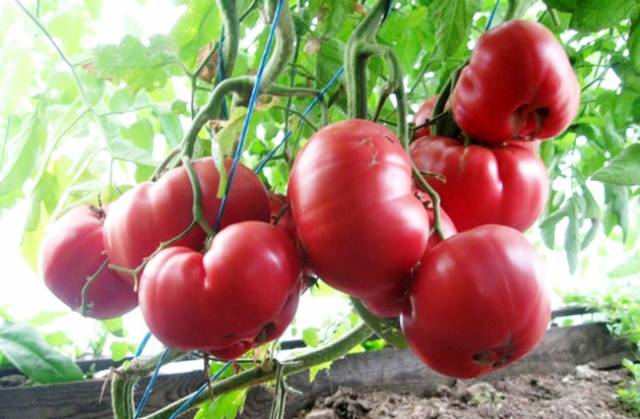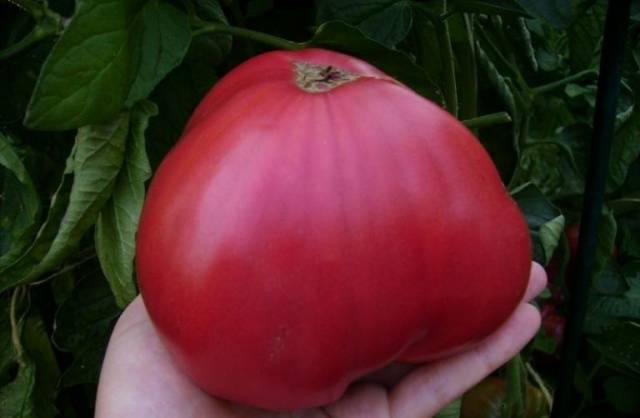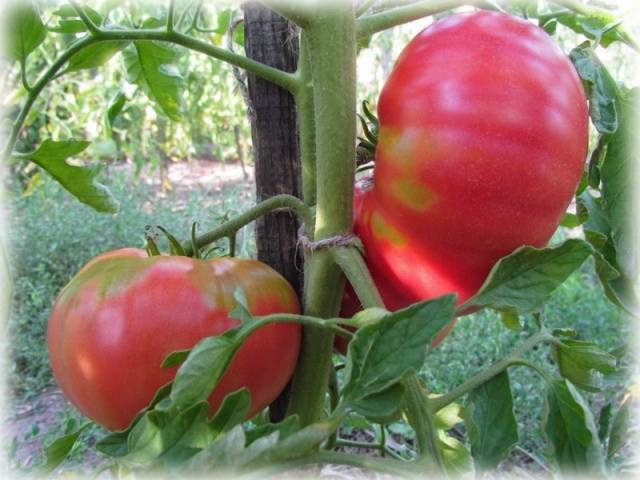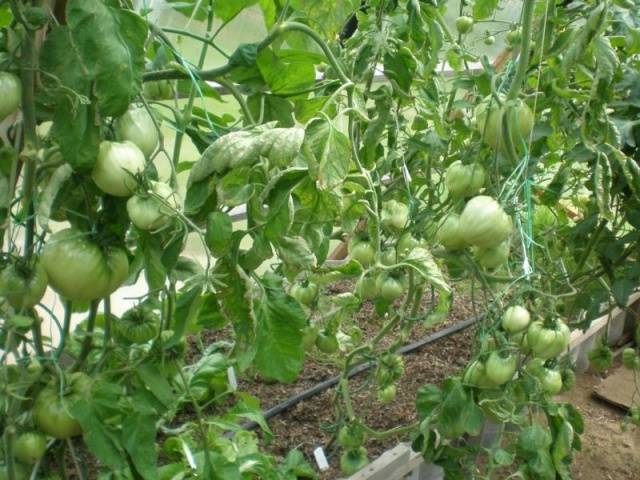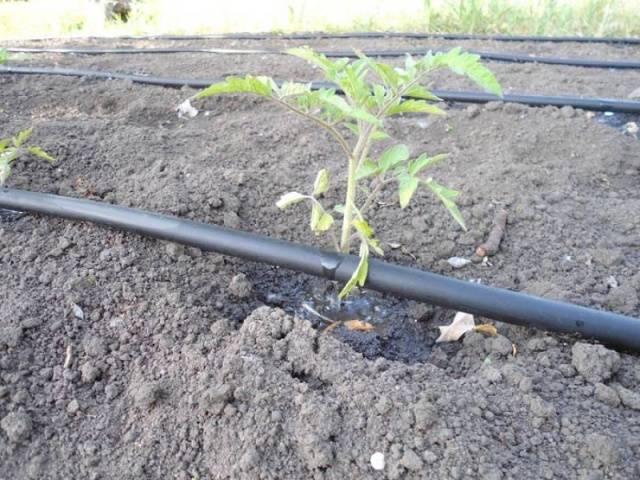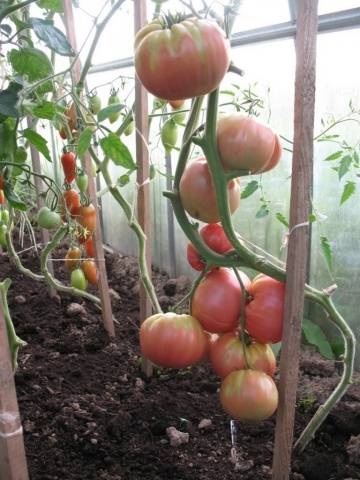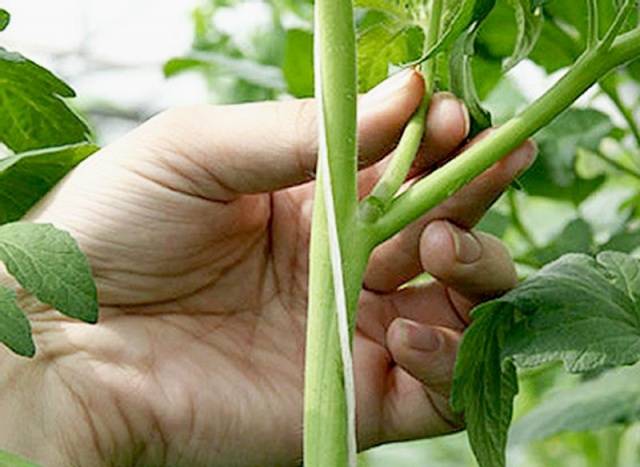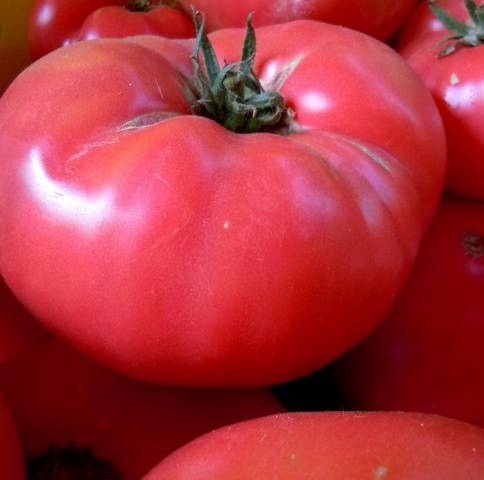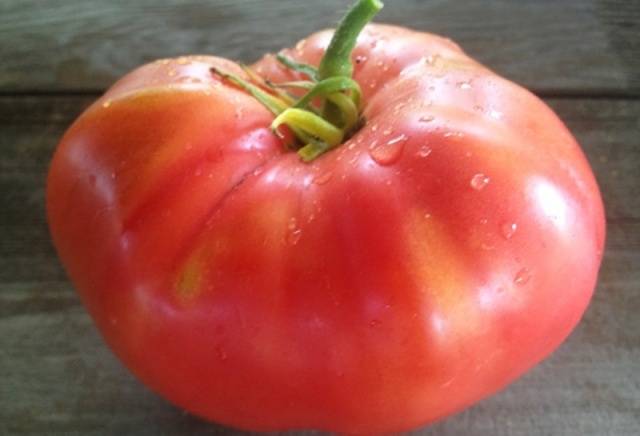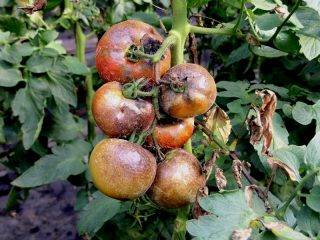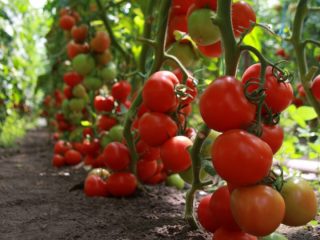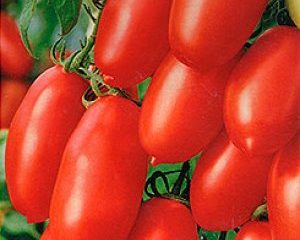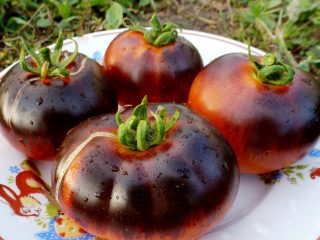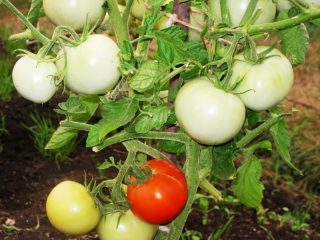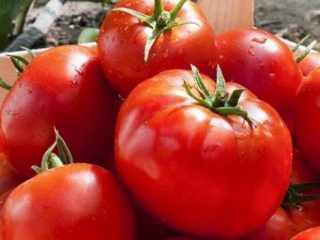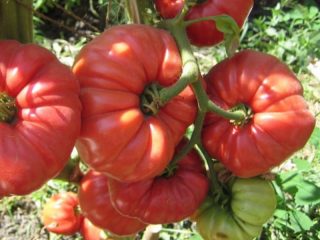Content
The Pink Honey tomato variety is deservedly popular due to its sweet taste, impressive size and ease of care. Below is a description of the variety, photos, reviews of the Pink Honey tomato.
This variety is recommended for planting in the middle zone and Siberia. The plant is not a hybrid. Therefore, it can be grown from seeds obtained from fruits from the previous harvest.
Description of the variety
Characteristics and description of the Pink Honey tomato variety are as follows:
- mid-season variety;
- 3-10 ovaries are formed on the hand;
- Fruit ripening period is from 111 to 115 days;
- Fruiting begins in August;
- yield - up to 6 kg from each bush;
- The height of the bush in open ground is up to 70 cm, in a greenhouse – up to 1 m.
The fruits of the Pink Honey variety have the following features:
- weight of the first fruits – up to 1.5 kg;
- subsequent copies are 600-800 g;
- pink fruit color;
- fleshy sweet pulp;
- there is no sourness in the taste;
- multi-chamber tomatoes (4 or more);
- heart-shaped fruit, slightly ribbed;
- thin skin.
Tomato Pink honey is used to prepare salads, tomato juice, adjika, caviar, sauces and other homemade preparations.The variety is not suitable for canning as a whole because it has a thin skin and is too large in size.
Landing rules
The Pink honey variety is grown indoors: in greenhouses and greenhouses. In the southern regions, planting directly in open ground is allowed. No more than three plants are planted on one square meter of soil.
It is first recommended to obtain seedlings that can be transferred to a greenhouse or to beds located in the open air.
Growing in open ground
Tomato seeds are planted in open ground after the soil and air have warmed up. It is recommended to start preparing the beds in the fall. They are dug up and fertilizers are added: compost, humus, ash, superphosphate, potassium sulfate.
For planting, choose places where legumes, cabbage, zucchini, cucumbers, onions, and pumpkins previously grew. If peppers, eggplants or potatoes grew in the garden bed, it is not recommended to use it for tomatoes, since these crops have similar diseases.
Pink honey tomato seeds are planted in holes with a diameter of 30 cm and a depth of 5 cm. 3-5 seeds are placed in each hole. After germination, the strongest plants are selected, and the remaining sprouts are weeded. Planting material should be sprinkled with soil and watered abundantly.
Growing in a greenhouse
Tomatoes are grown indoors using the seedling method. The soil in the greenhouse is dug up in the fall. Be sure to use fertilizers in the form of humus and ash.
Tomato seeds are soaked for a day, after which they are placed in containers filled with soil, peat humus and humus.The approximate timing of planting work is from mid-February to mid-March.
When the first shoots appear, the seedlings are transferred to a sunny place. Periodically spray the tomatoes with warm water. Plants can be planted in a permanent place at the age of 1.5 months.
Variety care
The Pink Honey variety requires standard care, which includes watering and fertilizing. The intensity of watering depends on the stage of development of tomatoes. As the plants grow, it is necessary to carry out pinching and tying up the bushes. Additionally, it is necessary to eliminate in a timely manner weeds and mulch the soil with straw or sawdust.
Watering tomatoes
The Rose Honey tomato requires moderate watering to keep the soil 90% hydrated. However, excess moisture leads to the development of fungal diseases and the falling of ovaries and fruits.
Tomatoes Pink honey is watered according to a certain scheme:
- After transferring to a permanent place, the seedlings are watered abundantly (4 liters per plant).
- The next watering is carried out after 10 days.
- Before flowering, tomatoes require moisture twice a week. Each bush will require 2 liters of water.
- During the flowering period, tomatoes are watered every week, and up to 5 liters of water are added under the bush.
- When the first fruits appear, the plants are watered twice a week, reducing the volume of water.
- When the tomatoes begin to turn red, water once a week. Excess moisture during this period provokes cracking of the fruit.
Tomatoes are watered in the morning or evening when the heat subsides.The water temperature should be 20 degrees or more. When watering, you need to avoid getting moisture on the leaves of plants so as not to cause them to burn.
Fertilizer application
By applying fertilizers, you can increase the yield and improve the taste of tomatoes. In total, several feedings are carried out:
- 14 days after transferring the seedlings to a permanent place.
- Before flowering begins.
- During the formation of ovaries.
- During the period of active fruiting.
Tomatoes are fertilized with solutions based on phosphorus and potassium. Phosphorus promotes the development of the root system. It is applied by dissolving superphosphate in water and watering the plants.
Potassium improves the taste of fruits and strengthens the immunity of plants. It is allowed to use complex fertilizers containing the required proportions of minerals.
A universal fertilizer for tomatoes is ash. It is prepared by combining 1 cup of ash and 10 liters of water. The resulting mixture is watered over the plants.
During the flowering period, you can spray tomatoes with boron. Add 1 g of the substance per liter of water, after which leaf treatment is carried out. Just one or two such feedings are enough.
Pinching and tying
As follows from the characteristics and description, the Pink Honey tomato variety requires pinching, which allows you to eliminate lateral shoots on the plant stem. Such shoots require a large amount of nutrients, which negatively affects the yield of tomatoes.
The first stepsons are removed under the flower brush. Its length should not exceed 5 cm. Work is carried out in the morning in dry and warm weather. The formation of the bush occurs in two stems.
Tomatoes are tied to a peg, which is driven into the ground.Once secured to a support, the bush is able to support a large number of fruits, it does not break and grows straight. In open ground, tying increases the resistance of plants to rain and wind.
Protection from diseases and pests
High-quality care will help protect tomatoes from pests and diseases. When signs of fungal diseases appear, plants are treated with fungicides (Ridomil). Effective insecticides have been developed against insect infestations.
Under unfavorable conditions (high humidity, lack of ventilation, low temperature, too dense plantings), the likelihood of the spread of late blight, gray rot and other diseases increases significantly.
Reviews from gardeners
Conclusion
The Pink Honey variety is distinguished by its excellent taste properties and large fruit weight. Tomatoes are grown in greenhouses and greenhouses, if weather conditions permit, then also in open ground.
For normal development, plants require regular care, which consists of watering, fertilizing and pruning. The application of potassium fertilizers, elimination of thickening and ventilation of the greenhouse will help increase the resistance of tomatoes to diseases.
